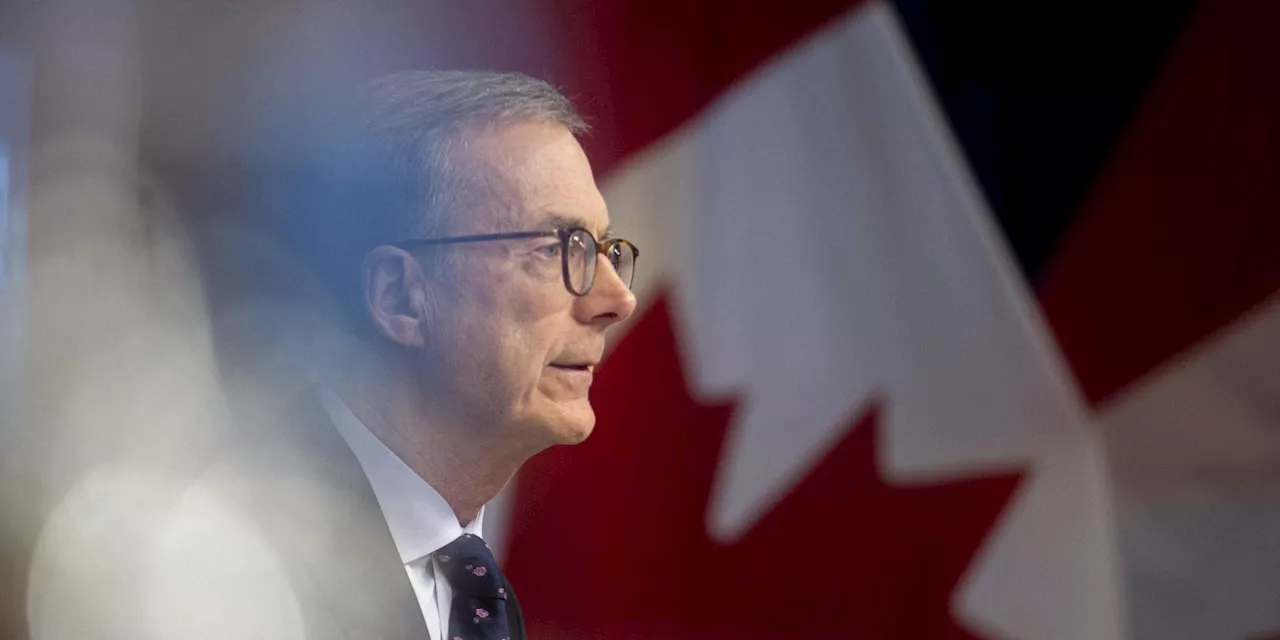The Bank of Canada released a report outlining the potential economic fallout from U.S. President Donald Trump's proposed tariffs on Canadian goods. The report assumes a scenario where both countries impose retaliatory 25% tariffs, leading to lower GDP growth and higher inflation in both nations. Canada's economy faces a greater risk due to potential declines in exports and job losses.
A monetary policy report released by the Bank of Canada on Jan. 29 laid out the likely ramifications of U.S. President Donald Trump’s potential tariffs. It assumed a scenario wherein the United States does slap a 25 per cent tariff on all Canadian goods, and Canada applies a 25 per cent retaliatory tariff on American imports. Governor Tiff Macklem starts a press conference at the Bank of Canada Museum on Jan. 29 to address the bank's decision to lower the overnight interest rate.
dollar could partially offset the damage. Carolyn Rogers, the central bank's senior deputy governor, and Macklem answer questions. The Hill Times photograph by Andrew Meade On the Canadian front, the circumstances could be much worse, as Canada’s major exports could decline in volume, some American imports could become costlier, and, due to Trump's order to impose tariffs on other countries, there could be a global economic decline.
Tariffs Trade War Bank Of Canada Canadian Economy US Economy
Canada Latest News, Canada Headlines
Similar News:You can also read news stories similar to this one that we have collected from other news sources.
 Bank of Canada Cuts Rates, Warns of Tariff RisksThe Bank of Canada lowered its key interest rate by 25 basis points to 3% and downgraded growth forecasts, expressing concern that a US-triggered tariff war could inflict major economic damage on Canada. The Canadian dollar initially rose but quickly retraced. Traders anticipate further rate cuts this year, with a 44% chance of another 25 basis point reduction at the next meeting in March. However, the Bank's stance on future rate cuts remains uncertain amidst the looming threat of tariffs.
Bank of Canada Cuts Rates, Warns of Tariff RisksThe Bank of Canada lowered its key interest rate by 25 basis points to 3% and downgraded growth forecasts, expressing concern that a US-triggered tariff war could inflict major economic damage on Canada. The Canadian dollar initially rose but quickly retraced. Traders anticipate further rate cuts this year, with a 44% chance of another 25 basis point reduction at the next meeting in March. However, the Bank's stance on future rate cuts remains uncertain amidst the looming threat of tariffs.
Read more »
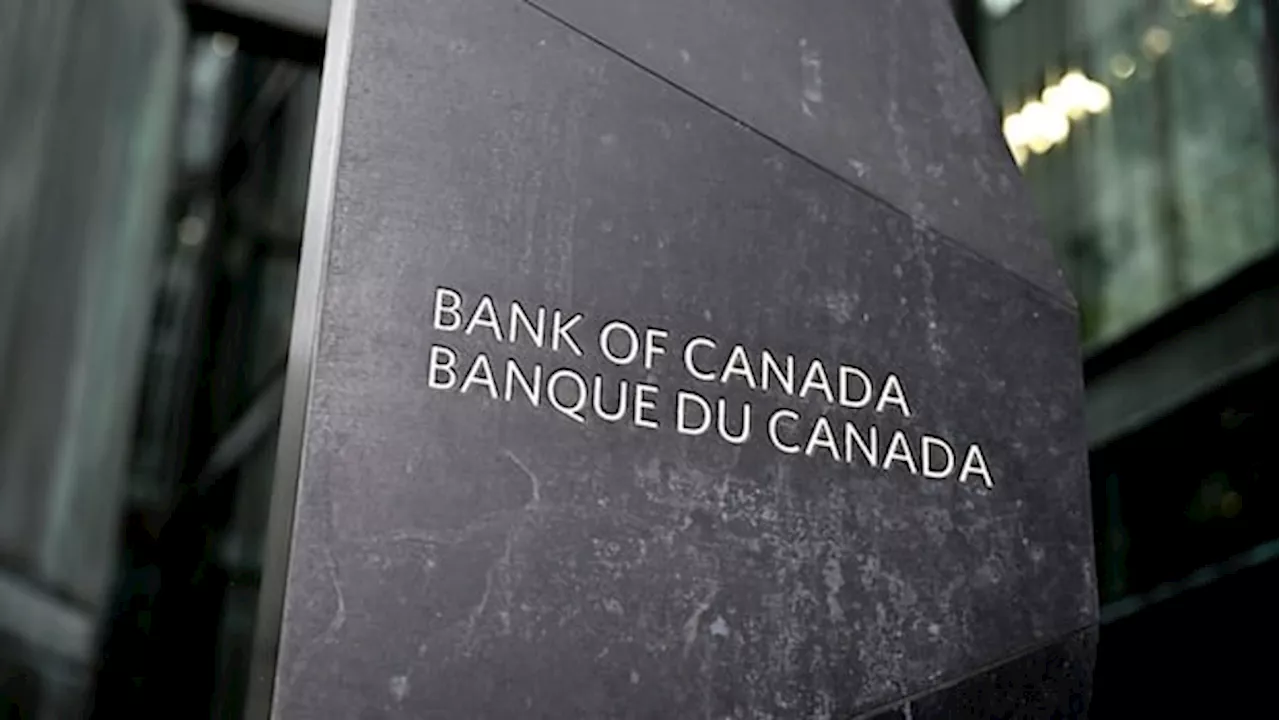 Bank of Canada cuts interest rate, warns it can do little to offset U.S. tariff impactA sign at the Bank of Canada building is seen in Ottawa, on Wednesday, July 24, 2024.
Bank of Canada cuts interest rate, warns it can do little to offset U.S. tariff impactA sign at the Bank of Canada building is seen in Ottawa, on Wednesday, July 24, 2024.
Read more »
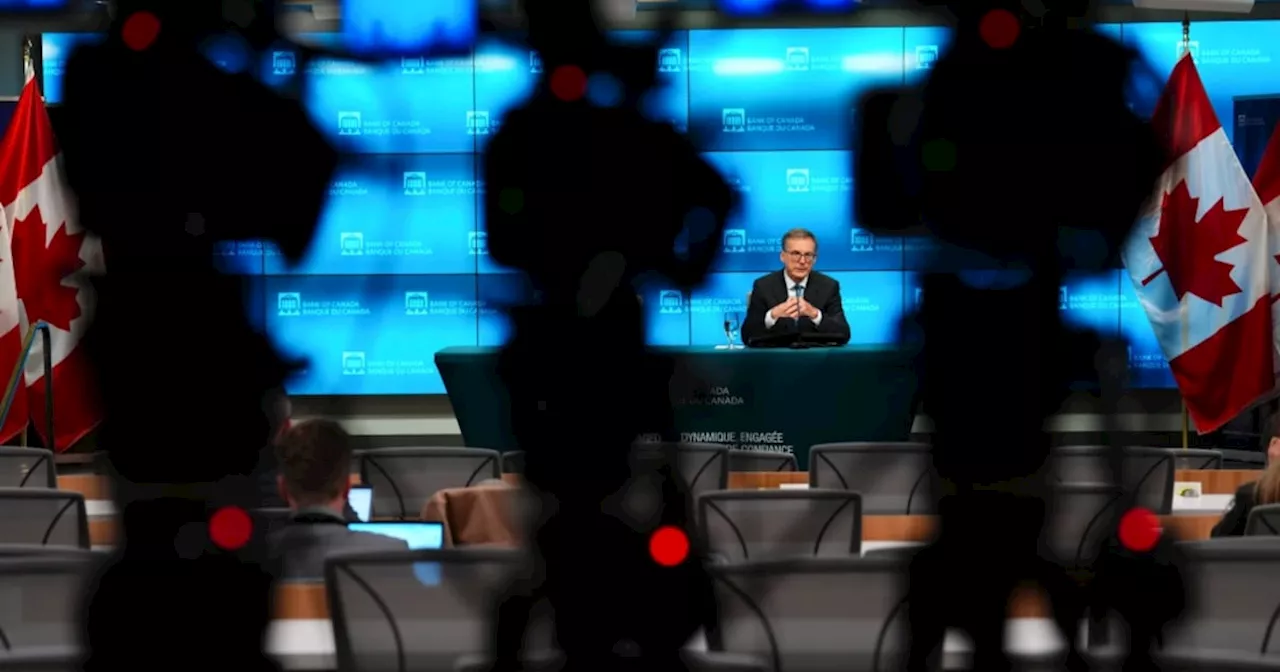 Canada's Inflation Eases, But Bank of Canada Faces Tough Trade-OffCanada's inflation rate dipped in December, but a leading economist warns that the Bank of Canada will likely prioritize stimulating the economy over immediate inflation control, given the looming threat of US tariffs and slowing growth.
Canada's Inflation Eases, But Bank of Canada Faces Tough Trade-OffCanada's inflation rate dipped in December, but a leading economist warns that the Bank of Canada will likely prioritize stimulating the economy over immediate inflation control, given the looming threat of US tariffs and slowing growth.
Read more »
 National Bank CEO Calls for Canada to Implement 'Buy Canada' Act Amid US Trade TensionsLaurent Ferreira, CEO of National Bank of Canada, advocates for protectionist measures and business-friendly reforms in response to US tariffs and protectionism. He proposes a 'Buy Canada Act' for government procurement and investments in key sectors, alongside tax and regulatory relief for businesses.
National Bank CEO Calls for Canada to Implement 'Buy Canada' Act Amid US Trade TensionsLaurent Ferreira, CEO of National Bank of Canada, advocates for protectionist measures and business-friendly reforms in response to US tariffs and protectionism. He proposes a 'Buy Canada Act' for government procurement and investments in key sectors, alongside tax and regulatory relief for businesses.
Read more »
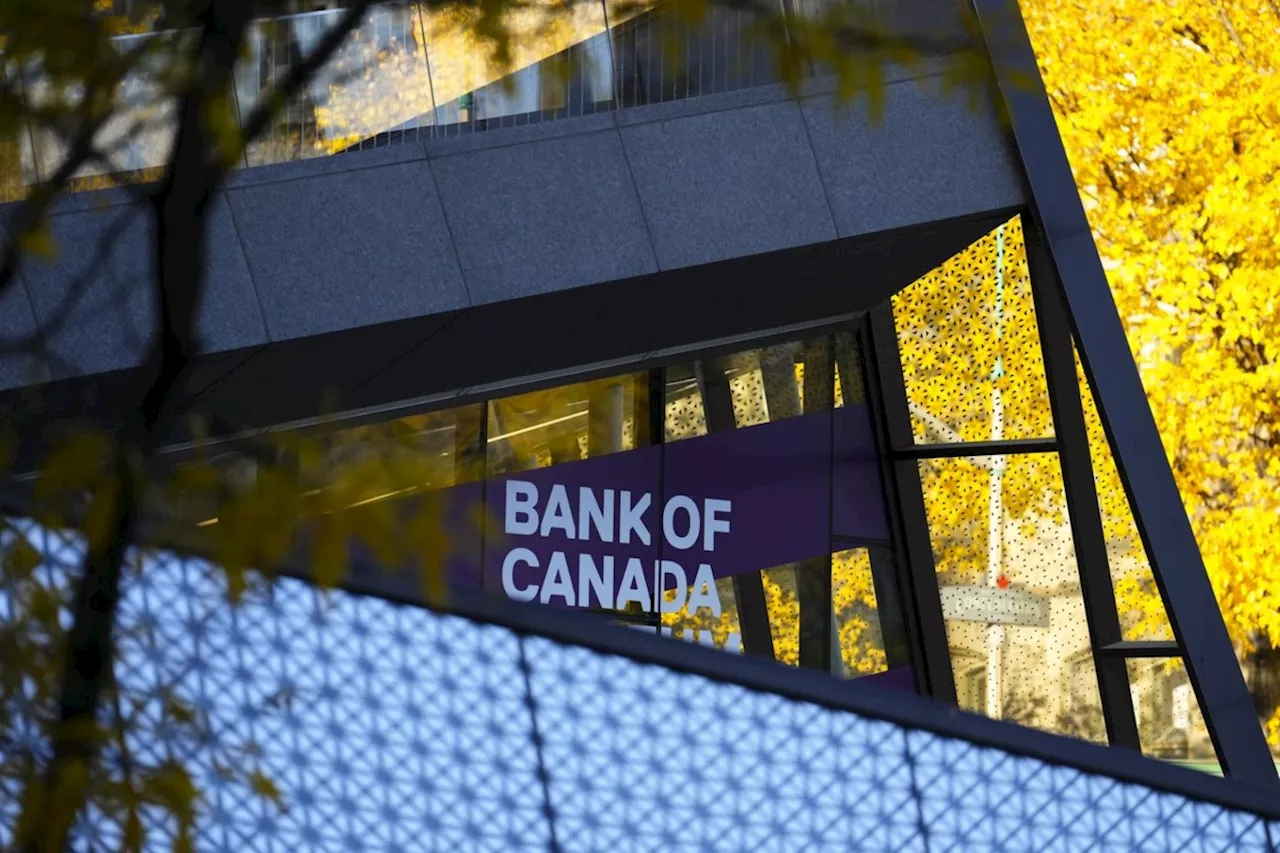 Canada-US Interest Rate Gap Widens as Bank of Canada Cuts Rates Amid Tariff ThreatsThe Bank of Canada cut its key lending rate, while the U.S. Federal Reserve is expected to hold rates steady, widening the interest rate gap between the two countries. Experts say this divergence, while putting downward pressure on the Canadian dollar, is driven by the Bank of Canada's concern over potential U.S. tariffs and their impact on the Canadian economy.
Canada-US Interest Rate Gap Widens as Bank of Canada Cuts Rates Amid Tariff ThreatsThe Bank of Canada cut its key lending rate, while the U.S. Federal Reserve is expected to hold rates steady, widening the interest rate gap between the two countries. Experts say this divergence, while putting downward pressure on the Canadian dollar, is driven by the Bank of Canada's concern over potential U.S. tariffs and their impact on the Canadian economy.
Read more »
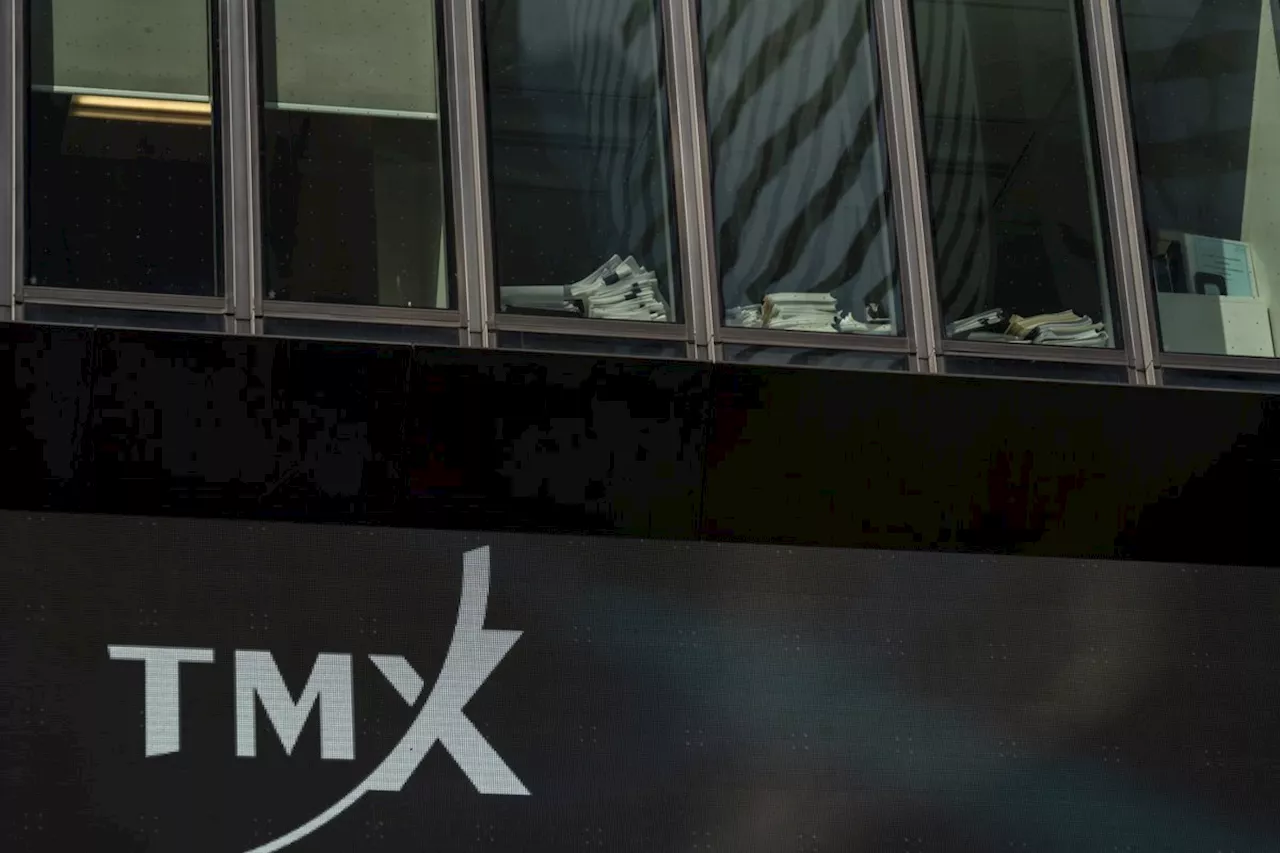 Canada's Main Stock Index Closes Higher as Bank of Canada Cuts RateCanada's main stock index rose on Wednesday following a rate cut by the Bank of Canada, while U.S. markets dipped as the Federal Reserve kept its rate unchanged. The divergence in rates reflects concerns about a softening Canadian labor market and potential tariffs, compared to the stronger U.S. economic performance. Tech valuations also influenced the market, with a selloff in big tech companies triggered by news about a Chinese AI model. The Canadian dollar weakened slightly against the U.S. dollar.
Canada's Main Stock Index Closes Higher as Bank of Canada Cuts RateCanada's main stock index rose on Wednesday following a rate cut by the Bank of Canada, while U.S. markets dipped as the Federal Reserve kept its rate unchanged. The divergence in rates reflects concerns about a softening Canadian labor market and potential tariffs, compared to the stronger U.S. economic performance. Tech valuations also influenced the market, with a selloff in big tech companies triggered by news about a Chinese AI model. The Canadian dollar weakened slightly against the U.S. dollar.
Read more »
